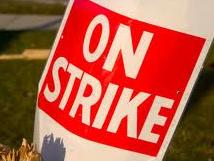
Why Rupert Murdoch’s Phone Hacking Scandal Could Transform British Politics
The tentacles of this scandal reach deep into the very heart of how global corporate power works.

The tentacles of this scandal reach deep into the very heart of how global corporate power works.

Source: Alternet
On July 28, 1932, World War I veterans marched on Washington to demand their service bonus. Today, in the face of austerity, we see very little protest like that march.
Seventy-nine years ago today, the U.S. Army attacked American World War I veterans, their families and thousands of other citizens gathered in peaceful assembly in Washington, D.C. In March, and as the Depression mounted, an estimated 15,000 people flooded the nation’s capital demanding payment of their veterans’ service bonus. By June, 20,000 had amassed.

On the 29th of June, Prime Minister Manmohan Singh met with editors of a few newspapers. When asked about whether he had been putting pressure on the Environment Ministry to approve environmentally destructive projects, he said “yes”, and justified by quoting Indira Gandhi “poverty is the biggest polluter, we need to have a balance”. Indira Gandhi had said this in Stockholm in 1972 at the first Environmental Conference. She had also quoted from the Atharvaveda –
“Whatever, I dig of you, O Earth,

Dan Chodorkoff’s Loisaida is a compelling coming-of-age story that describes one young woman’s journey of self-discovery and political awakening.

As the inequalities in wealth continue to grow, some have argued that the decline in the labor movement is a strong contributing factor to this tendency.

From the clothes we wear, to the food we eat, to how we move ourselves around, without oil, our lives would look very differently.
Yet oil is a finite resource. While there is no argument that it won’t last forever, there is debate about how much oil is left and how long it might last.
Tom Whipple, an energy scholar, was a CIA analyst for 30 years – and believes we are likely at, or very near, a point in history when the maximum production capacity for oil is reached, a phenomenon often referred to as “peak oil”.
Copyright Toward Freedom 2019